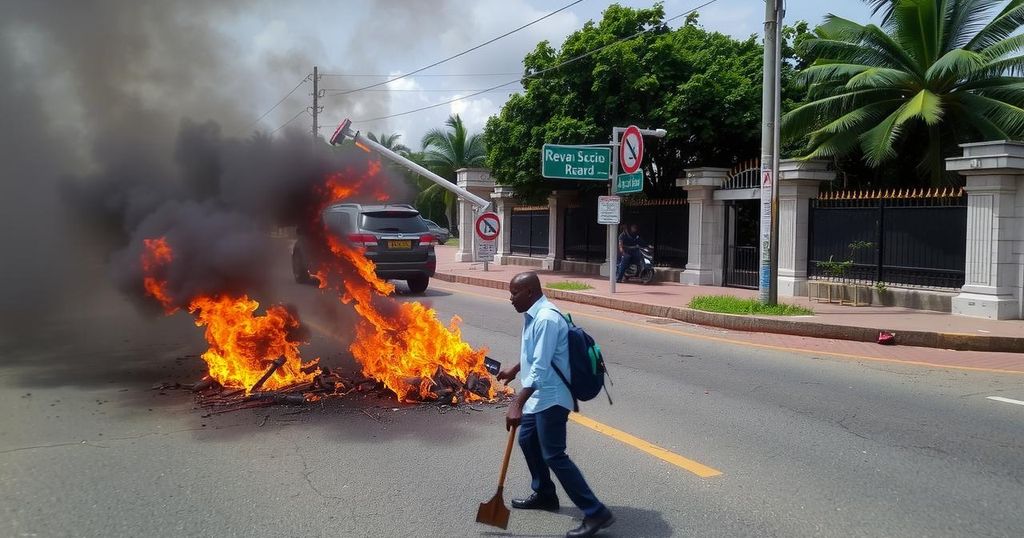Mozambique is in turmoil following the confirmation of disputed election results, leading to lethal protests, widespread looting, and economic paralysis in major cities. The situation escalated after the ruling Frelimo party secured continued power, triggering public outrage and calls for democratic reform. International bodies are urging dialogue to address the violence and instability affecting the nation.
Major cities in Mozambique have witnessed severe disruptions due to post-election unrest, particularly following the confirmation of disputed presidential election results by the Constitutional Council. The capital, Maputo, along with the largest suburb, Matola, faced significant chaos as opposition-led demonstrations emerged, leading to widespread looting and vandalism. Local businesses, including banks and markets, have been forced to close, paralyzing vital economic activities. The court’s ruling favored the ruling Frelimo party, which has maintained power since 1975, intensifying public outrage and leading to violent protests.
The situation escalated with reports of looting in neighborhoods such as Praca dos Combatentes and George Dimitrov, resulting in tragic incidents including fatalities from a warehouse fire during a protest. Residents have responded by erecting barricades and organizing against the ruling party, expressing their frustrations and desires for political change. Police have characterized the violence as criminal activity, while opposition leaders have accused law enforcement of instigating unrest. The protests have reportedly led to the deaths of 248 individuals, with significant chaos erupting in prisons as inmates capitalized on the unrest to escape.
United Nations officials have voiced deep concerns over the violence, calling for dialogue and peaceful resolutions to the crisis. Secretary-General Antonio Guterres has urged all political leaders to engage in constructive dialogue to mitigate tensions and safeguard the future of Mozambique. This unrest follows an extended period of governance by Frelimo, highlighting ongoing disputes regarding electoral integrity and democratic representation in the nation.
The unrest in Mozambique is rooted in the long-standing dominance of the Frelimo party, which has controlled the government since independence in 1975. The recent presidential elections were marred by allegations of vote rigging and opposition protests, leading to violent confrontations between activists and the police. The Constitutional Council’s announcement regarding the election results intensified public discontent, triggering mass demonstrations in major cities. As a result, the nation faces severe instability, with rising deaths and economic disruption as citizens express their disillusionment with the current political climate.
In summary, Mozambique is currently grappling with significant unrest following contested election results that have prompted widespread protests and violence. The ruling Frelimo party’s continued dominance amid allegations of electoral fraud has sparked public outrage, leading communities to organize actively against perceived government shortcomings. The situation remains precarious, with humanitarian concerns escalating, and calls for dialogue from the international community to restore peace and facilitate a constructive resolution.
Original Source: www.dw.com






